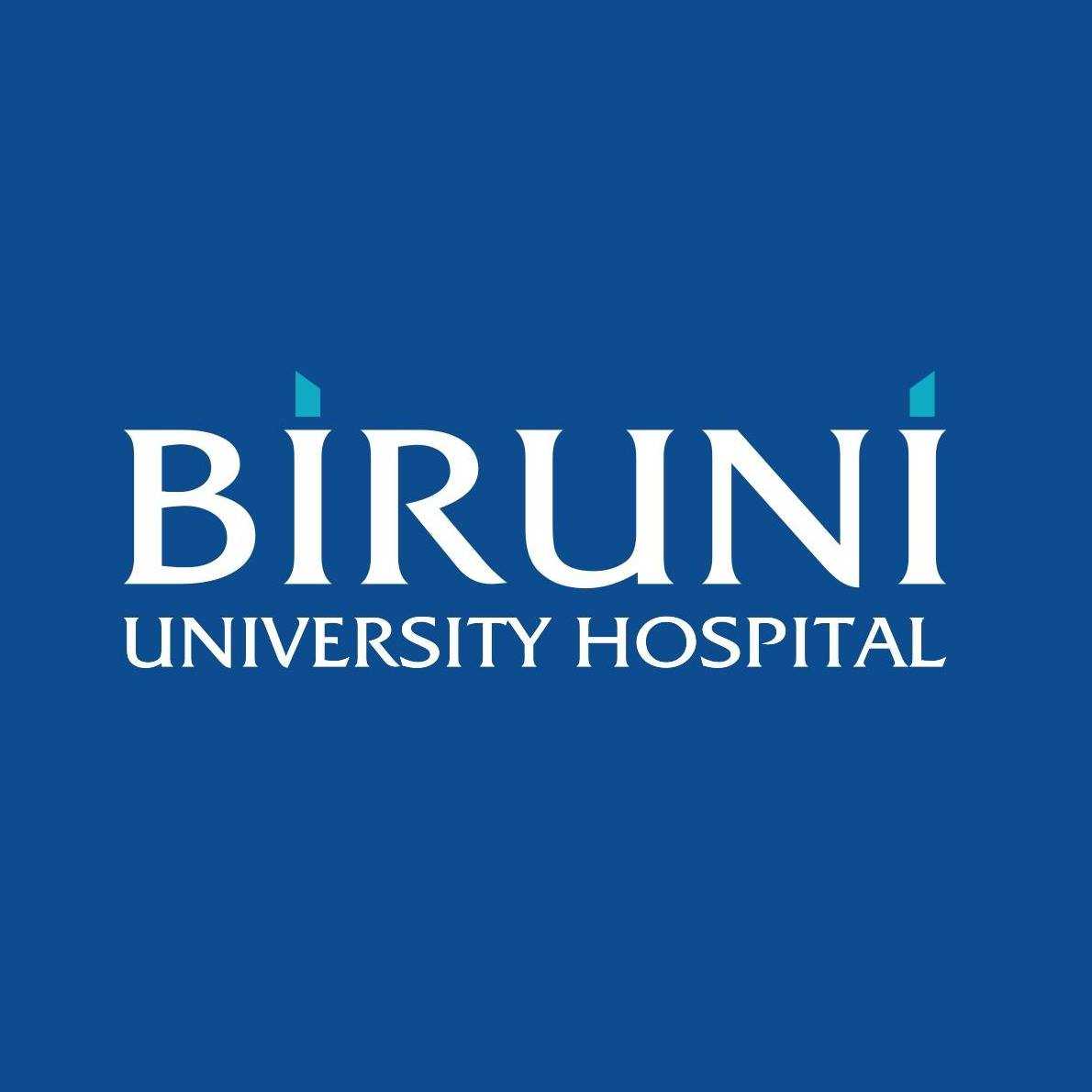Istanbul: The Premier Destination for Bariatric Surgery in Turkey
"Istanbul is widely considered the best city in Turkey for bariatric surgery due to its concentration of internationally accredited hospitals, highly experienced surgeons, advanced technology, comprehensive patient packages, and ease of accessibility for international patients."

Turkey has become a leading global destination for bariatric surgery, attracting patients from around the world seeking effective weight loss solutions. The country offers a compelling combination of experienced surgeons, state-of-the-art medical facilities, and significantly more affordable costs compared to many Western nations. While several Turkish cities provide excellent bariatric services, the choice of location can greatly impact a patient's overall experience and access to specialized care. This blog post aims to guide prospective patients by identifying the best city in Turkey for bariatric surgery, providing detailed insights into why it stands out, and answering common questions about undergoing weight-loss procedures in this popular medical tourism hub.
Why is Istanbul the top choice for bariatric surgery in Turkey?
"Istanbul is the top choice for bariatric surgery in Turkey due to its unparalleled concentration of JCI-accredited hospitals, a large pool of highly experienced bariatric surgeons, advanced surgical technology, and comprehensive all-inclusive packages designed for international patients."
Istanbul consistently ranks as the premier city in Turkey for bariatric surgery. This status is largely attributed to its well-developed medical tourism infrastructure. The city hosts numerous hospitals that have achieved Joint Commission International (JCI) accreditation, a gold standard for patient safety and quality in healthcare globally. This rigorous accreditation ensures that facilities adhere to international best practices, providing peace of mind for patients traveling from abroad.
The sheer volume of bariatric surgery procedures performed in Istanbul means that surgeons often have extensive experience, specializing in a range of techniques from gastric sleeve and gastric bypass to mini gastric bypass and gastric balloon insertions. Many of these surgeons have international training and affiliations, staying abreast of the latest advancements in weight loss surgery. Furthermore, Istanbul's clinics are equipped with advanced technology, including laparoscopic and sometimes robotic-assisted systems, which facilitate minimally invasive procedures, leading to faster recovery times and reduced scarring.
What types of bariatric surgeries are commonly performed in Turkey?
"Common types of bariatric surgeries performed in Turkey include Gastric Sleeve (Sleeve Gastrectomy), Gastric Bypass (Roux-en-Y), Mini Gastric Bypass, and Gastric Balloon insertion, catering to various weight loss needs and patient conditions."
Turkish clinics offer a comprehensive range of weight loss surgery options to suit different patient profiles and medical requirements. These procedures are designed to help individuals achieve significant and sustainable weight loss by altering the digestive system. The most common types include:
-
Gastric Sleeve (Sleeve Gastrectomy): This is the most frequently performed bariatric surgery globally and in Turkey. It involves surgically removing about 75-80% of the stomach, leaving a banana-shaped "sleeve." This reduces the amount of food the stomach can hold and decreases the production of hunger-inducing hormones.
-
Gastric Bypass (Roux-en-Y): This procedure creates a small stomach pouch and then connects it directly to the small intestine, bypassing a large portion of the stomach and duodenum. It reduces both food intake and nutrient absorption.
-
Mini Gastric Bypass: A simpler and often quicker variant of the traditional gastric bypass, creating a longer, narrower stomach pouch and a single connection to the small intestine. It offers similar benefits with potentially fewer complexities.
-
Gastric Balloon: A non-surgical, temporary procedure where a deflated silicone balloon is inserted into the stomach and then inflated, reducing stomach capacity and promoting a feeling of fullness. It is typically removed after 6-12 months.
In addition to these, some clinics may offer metabolic surgery for diabetes control or revision bariatric surgery for patients who have not achieved desired results or experienced complications from previous procedures.
How do the costs of bariatric surgery in Istanbul compare to Western countries?
"The cost of bariatric surgery in Istanbul is significantly lower than in Western countries, with gastric sleeve typically ranging from €2,850 to €5,500, and gastric bypass from €3,750 to €6,000, often including comprehensive packages that make it highly competitive."
One of the primary drivers for patients choosing Turkey, particularly Istanbul, for bariatric surgery is the substantial cost savings. While the exact price can vary based on the clinic, surgeon's experience, and the specific procedure, the costs are considerably lower than in countries like the United States, Canada, the UK, or Australia.
For example, a gastric sleeve procedure in Istanbul can range from approximately €2,850 to €5,500. A gastric bypass typically costs between €3,750 and €6,000. These prices often represent all-inclusive packages that cover:
-
Pre-operative consultations and tests (blood work, endoscopy, cardiology check, etc.)
-
Surgeon's fees and anesthesiologist's fees
-
Hospital stay (usually 3-4 nights)
-
Post-operative medication
-
Dietitian and psychological consultations
-
Airport transfers and interpreter services
-
Sometimes even a short hotel stay before or after discharge.
In contrast, the same procedures in the US can range from $15,000 to $30,000 or more, often without including comprehensive pre- and post-operative care, making Turkey an extremely attractive option for affordable weight loss surgery.
What are the success rates for bariatric surgery in Turkey?
"Bariatric surgery in Turkey boasts high success rates, with many reputable clinics reporting 90%+ patient satisfaction and significant excess weight loss, particularly for procedures like gastric sleeve and gastric bypass, attributed to experienced surgeons and comprehensive post-op support."
The success rates for bariatric surgery in Turkey are a testament to the expertise of its medical professionals and the quality of care provided. While individual results vary based on patient commitment to lifestyle changes, clinics in Turkey consistently report high rates of significant and sustained weight loss.
For procedures like gastric sleeve and gastric bypass, patients can typically expect to lose 60-80% of their excess body weight within 12-18 months following surgery. Beyond weight loss, bariatric surgery in Turkey also shows high success in improving or resolving obesity-related health conditions such as Type 2 diabetes, high blood pressure, sleep apnea, and joint pain. Many clinics, particularly in Istanbul, highlight patient satisfaction rates exceeding 90%. This success is often supported by comprehensive pre-operative evaluations and crucial post-operative follow-up programs, including dietary guidance and psychological support, which are vital for long-term results.
What qualifications should I look for in a bariatric surgeon in Turkey?
"When choosing a bariatric surgeon in Turkey, look for board certification in General Surgery with specialized training and extensive experience in bariatric and metabolic surgery, membership in national and international surgical associations (like IFSO), and a strong track record of successful outcomes."
Selecting a qualified and experienced surgeon is paramount for the safety and success of your bariatric surgery. In Turkey, reputable bariatric surgeons will typically possess the following qualifications:
-
Medical Degree and General Surgery Residency: They must have completed medical school and a full residency program in General Surgery.
-
Specialized Training in Bariatric and Metabolic Surgery: This is crucial. Look for surgeons who have undergone specific fellowships or extensive training focused solely on weight loss surgery techniques.
-
Board Certification: While Turkey has its own medical boards, many top surgeons also hold or pursue international certifications or affiliations that demonstrate adherence to global standards.
-
Membership in Professional Associations: Membership in organizations like the Turkish Surgical Association, Turkish Association for Metabolic and Bariatric Surgery, or the International Federation for the Surgery of Obesity and Metabolic Disorders (IFSO) signifies a commitment to professional development and ethical practice.
-
Experience and Volume of Cases: Inquire about the surgeon's specific experience with the type of bariatric surgery you are considering (e.g., number of gastric sleeve or gastric bypass procedures performed). A high volume of cases often correlates with greater expertise.
-
Multidisciplinary Team: The surgeon should be part of a multidisciplinary team that includes endocrinologists, dietitians, psychologists, and anesthesiologists, ensuring comprehensive patient care.
Clinics in Istanbul often feature profiles of their surgeons, detailing their qualifications, experience, and patient testimonials, making it easier for international patients to vet their potential surgeon.
What is typically included in an all-inclusive bariatric surgery package in Turkey?
"An all-inclusive bariatric surgery package in Turkey typically covers pre-operative medical tests and consultations, the surgeon's and anesthesiologist's fees, hospital stay, post-operative medications, dietitian follow-ups, airport transfers, and interpreter services, offering a seamless experience for international patients."
One of the major attractions of undergoing bariatric surgery in Turkey is the prevalence of comprehensive, all-inclusive packages that aim to minimize stress and hidden costs for international patients. While specific inclusions can vary slightly between clinics, a typical package will generally cover:
-
Pre-operative Medical Evaluations: This includes all necessary blood tests, endoscopy, electrocardiogram (ECG), chest X-ray, pulmonary function tests, and consultations with internal medicine specialists, cardiologists, and sometimes endocrinologists or psychologists to ensure you are a suitable candidate.
-
Surgical Fees: The primary cost of the bariatric surgery itself, including the surgeon's fee, anesthesiologist's fee, and operating room charges.
-
Hospital Stay: Accommodation in a private room for the standard duration (usually 3-4 nights post-op).
-
Post-operative Medications: Initial supply of necessary pain relievers, anti-nausea medications, and sometimes vitamins or supplements.
-
Dietitian and Follow-up Support: Consultations with a specialized dietitian before and after surgery to guide your nutritional changes. Many clinics also offer long-term virtual follow-ups.
-
Transfers: VIP airport transfers to and from the hospital/hotel.
-
Accommodation (Optional): Some premium packages might include a few nights of hotel accommodation before or after the hospital stay.
-
Interpreter Services: A dedicated English-speaking (or other language) interpreter to facilitate communication with the medical team.
It's always crucial to get a detailed breakdown of what is included in your chosen package to avoid any surprises.
How long is the recommended stay in Turkey for bariatric surgery?
"The recommended stay in Turkey for bariatric surgery is typically 7 to 10 days, allowing for pre-operative evaluations, the surgical procedure, hospital recovery, and essential post-operative checks before it's safe to travel back home."
For patients traveling for bariatric surgery in Turkey, planning the duration of stay is vital for a safe and smooth experience. While the hospital stay for the surgery itself is usually 3-4 nights, clinics generally recommend a total stay of 7 to 10 days in Turkey.
This extended period allows for:
-
Pre-operative Assessments: Arriving a few days before surgery allows time for all necessary medical tests, consultations with the surgical team, dietitian, and psychologist.
-
Hospital Recovery: The crucial immediate post-operative period within the hospital, under constant medical supervision.
-
Initial Out-of-Hospital Recovery: A few extra days after discharge to rest and recuperate in a comfortable hotel environment, allowing the body to adjust before undertaking long-haul travel. This period is essential for observing any immediate post-surgical issues and ensuring stability.
-
Final Check-ups: A last check-up with your surgeon to ensure everything is healing properly, drains are removed (if applicable), and you are cleared for travel.
Rushing home too soon after major surgery can increase risks such as deep vein thrombosis (DVT) or other complications. Therefore, budgeting for this recovery time in Istanbul or your chosen city is an integral part of the bariatric surgery journey.
What post-operative support can I expect from a Turkish bariatric clinic?
"Reputable Turkish bariatric clinics provide comprehensive post-operative support, including detailed dietary plans, vitamin and supplement guidance, regular virtual follow-up consultations with dietitians and surgeons, and access to a patient support coordinator for ongoing queries."
The success of bariatric surgery depends heavily on adherence to a rigorous post-operative plan. Turkish clinics, particularly those experienced with international patients, understand this and typically offer robust aftercare support. This support is crucial for long-term weight loss and maintaining overall health.
Key aspects of post-operative support generally include:
-
Detailed Dietary Guidance: Patients receive a structured diet plan, often starting with clear liquids and gradually progressing to pureed foods, soft foods, and eventually solid foods. This is overseen by a specialized dietitian.
-
Vitamin and Mineral Supplementation: Crucial guidance on the necessary lifelong vitamin and mineral supplements to prevent deficiencies, which are common after bariatric surgery.
-
Regular Follow-up Consultations: Most clinics arrange scheduled virtual (video or phone) follow-ups with the surgeon and dietitian at specific intervals (e.g., 1 month, 3 months, 6 months, 1 year) to monitor progress, address concerns, and make necessary adjustments.
-
Exercise Recommendations: Guidance on gradually introducing physical activity into the daily routine.
-
Psychological Support: Continued access to psychological counseling, if needed, to help patients adjust to their new body image, eating habits, and emotional challenges that may arise during the weight loss journey.
-
Patient Support Coordinator: Often, international patients will have a dedicated coordinator who can answer questions, provide ongoing support, and help connect them with the medical team.
This comprehensive approach to aftercare significantly contributes to the long-term success and well-being of bariatric surgery patients in Turkey.
If you are considering bariatric surgery and want to explore your options in Turkey, PlacidWay can connect you with highly reputable clinics and experienced surgeons, helping you find the best solution for your weight loss journey.

 Perplexity AI
Perplexity AI
 Google Gemini
Google Gemini

.png)
.png)



.png)
.png)
.png)
-(1).png)






Share this listing